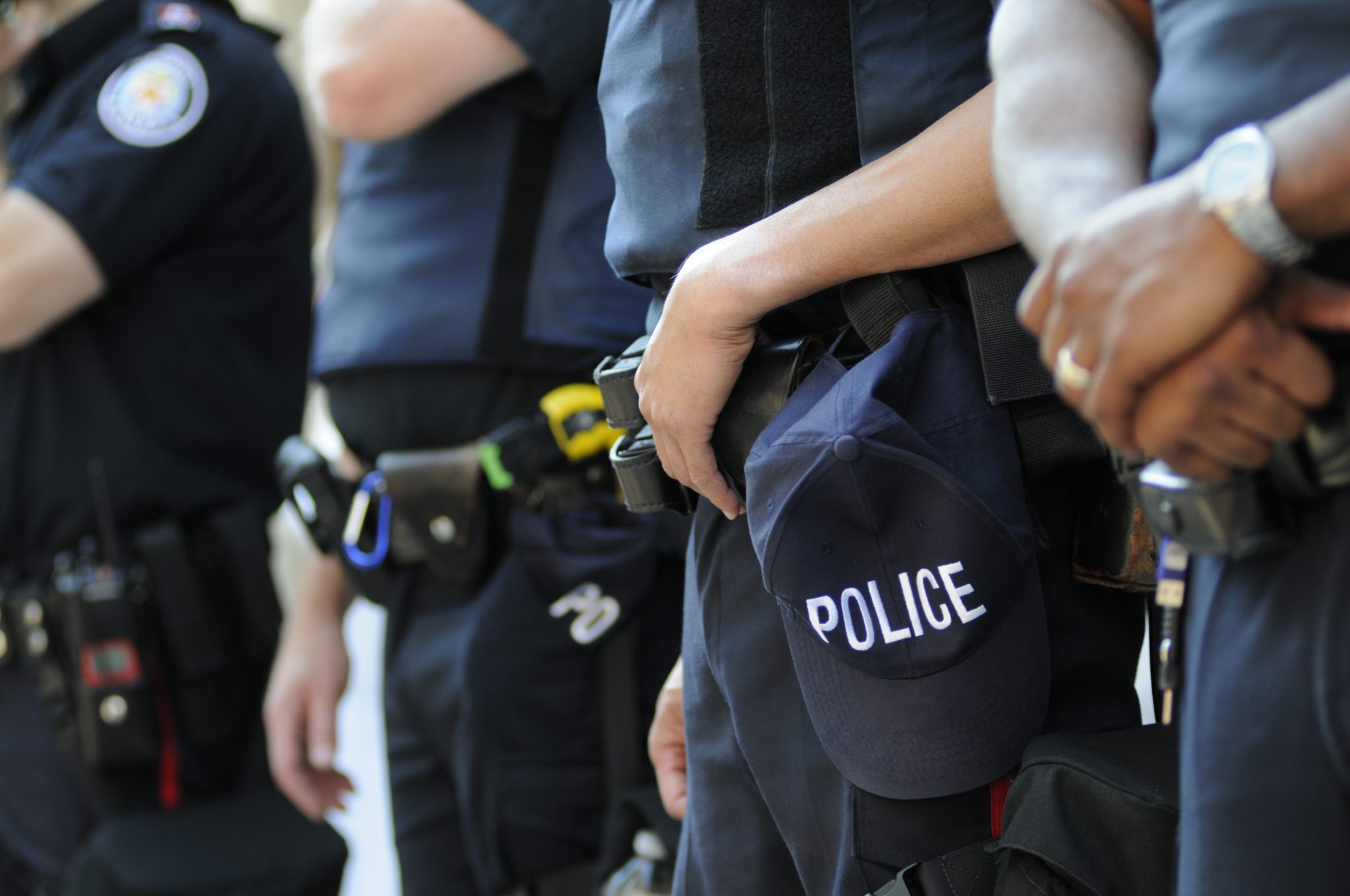Can you be a cop with a DWI? It’s a question more people are asking than you might think—and the answer isn’t as cut-and-dried as many assume. Whether you made a mistake years ago or just wrapped up a case involving a DWI charge, the path to becoming a police officer may still be open. But it’s complicated. Really complicated.
This guide breaks down exactly how aDWI can affect your law enforcement dreams, what departments look for, and how some candidates have turned their record around to wear the badge. Through real-world examples, state-level breakdowns, and legal insight, we’ll explore whether a DWI is a deal breaker—or just a bump in the road.
The Big Question: Can You Be a Cop with a DWI?
Let’s address it directly: can you be a cop with a DWI? In many cases, the answer is: maybe—but with conditions. Law enforcement agencies vary in how they treat DWI convictions. Some have hardline policies, while others consider the entire picture—your age at the time, the circumstances, how much time has passed, and what you’ve done since.
Generally, the more time between the DWI and your application, and the more rehabilitative steps you’ve taken, the better your chances.

Real-Life Example: Marcus’ Road to Redemption
Marcus was 21 when he got his first—and only—DWI. He was a college senior with a criminal justice major and dreams of joining the local police force. After his conviction, he assumed his career was over.
But Marcus didn’t give up. He completed probation, entered counseling, finished his degree, volunteered in his community, and waited. Five years later, he applied to a sheriff’s department in a neighboring county—and after a thorough background check and several interviews, he was accepted.
His story proves one thing: can you be a cop with a DWI? Not always—but sometimes, yes.
What Law Enforcement Agencies Look For
Each department sets its own hiring standards. What disqualifies a candidate in one county might be acceptable in another. Still, there are common threads.
Felony vs. Misdemeanor DWI
A felony DWI—such as one involving injury, repeat offenses, or a child passenger—will almost always disqualify you. Police officers are expected to uphold the law, and a felony record is often a non-starter.
A misdemeanor DWI, especially a first offense from several years ago, may not automatically disqualify you. Departments often weigh:
- The number of offenses
- How long ago it happened
- Your age at the time
- Steps you’ve taken since
- Whether you were convicted or just arrested
Arrest vs. Conviction
If you were arrested for DWI but the case was dismissed, or you were acquitted, many departments may look more favorably on your record. Still, they will want to know the details. You’ll likely need to explain what happened in interviews, and they may request supporting documents.
State-by-State Hiring Rules: Can You Be a Cop with a DWI?
Let’s examine how various states treat applicants with DWIs.
Texas
In Texas, each police department has its own policy. Most agencies disqualify applicants with a DWI conviction within the past 10 years, especially if it’s a felony. However, some agencies allow exceptions for older misdemeanor convictions, especially with strong rehabilitation and no subsequent incidents.
California
California is strict. A felony DWI automatically disqualifies you. A misdemeanor might not—but you’ll face an uphill battle unless it’s been many years and you’ve maintained a clean record.
New York
In New York, even a misdemeanor DWI can significantly hurt your chances. The NYPD and many agencies consider it a serious character flaw, though smaller departments may be more flexible.
Florida
Florida departments usually follow state hiring standards, which prohibit applicants with felony convictions or serious misdemeanors. However, older misdemeanors may be considered with a strong record of rehabilitation.
Always check with the specific department you’re interested in. “Can you be a cop with a DWI?” really depends on who you’re asking—and where.
The Role of Background Checks in Police Hiring
Every law enforcement agency conducts a thorough background check before hiring. This process typically includes:
- Criminal history (including arrests and convictions)
- Driving records
- Credit history
- Employment verification
- Social media review
- Interviews with friends, neighbors, and former employers
If you’ve had a DWI, it will absolutely come up. But transparency is key. Lying or hiding information is a guaranteed way to get disqualified—even if the original offense wouldn’t have done it.
Tip: Own Your Past
If your record shows a DWI, own it. Be honest during your interviews. Focus on what you learned, how you’ve grown, and what you’ve done to prove you’re responsible now.
What About Expunged or Sealed Records?
A common question is: can you be a cop with a DWI that’s been expunged? Again, the answer depends on the department.
Even if your DWI was expunged or sealed, law enforcement agencies often still see it during the background check. Expungement might help with civilian jobs, but not necessarily with police departments.
Many agencies require applicants to disclose all arrests and convictions, even if they’ve been expunged. Failing to mention an expunged DWI can be more damaging than the DWI itself.

Psychological and Moral Character Evaluations
Police applicants don’t just undergo physical exams—they also undergo psychological screenings and moral character evaluations. A DWI may raise red flags about:
- Impulse control
- Risk-taking behavior
- Substance misuse
- Judgment under pressure
If you can show that the DWI was an isolated incident and you’ve taken concrete steps to grow, you may still pass these evaluations. But if the incident was recent or part of a pattern, it could cost you the job.
Moral Turpitude and DWIs
Some departments consider DWI a crime of “moral turpitude,” particularly if it involved endangering others. This designation may prevent you from getting licensed as a peace officer in some states, regardless of whether a department wants to hire you.
How Long Should You Wait to Apply After a DWI?
There’s no universal rule here, but most law enforcement experts suggest waiting at least five years after a DWI conviction before applying. During that time, focus on:
- Staying completely sober behind the wheel
- Avoiding any legal issues
- Completing volunteer work
- Pursuing education or certifications
- Building strong references

Each year that passes without incident strengthens your application. Departments want to see maturity, stability, and clear behavioral change.
Can You Join Federal or Military Law Enforcement with a DWI?
When it comes to federal law enforcement—FBI, DEA, ATF—the standards are even higher. A DWI conviction, even as amisdemeanor, may be disqualifying unless it’s expunged or very old. These agencies operate under strict character requirements, and even minor past offenses are reviewed thoroughly during the hiring process.
Military police units (MPs) have slightly more flexibility but still require a clean driving and criminal record for most positions. Some branches may offer waivers for old misdemeanors, but it’s rare. Every branch also conducts background checks that assess your overall reliability and discipline record.
Special Clearances and Security Checks
Many law enforcement jobs, especially federal ones, require security clearances. A DWI—especially if recent—can result in your clearance being denied or revoked. These checks look at your full personal history, including financial behavior and substance use, making any DWI a potential red flag.
Turning a Setback into a Comeback: Building a Strong Application
If you’re serious about becoming a police officer despite a DWI, you’ll need to put in the work to build an exceptional application. Here’s how:
- Get character references from respected community members.
- Volunteer for local organizations or law enforcement outreach programs.
- Stay clean—no more traffic tickets, no arrests, nothing questionable on social media.
- Take accountability for your past mistake—without making excuses.
- Pursue relevant education like criminal justice courses or academies.

Story of Redemption: Ana’s Second Shot
Ana had a DWI at age 25. It was embarrassing, expensive, and nearly derailed her dream of becoming a police officer. But she doubled down: attended AA, worked security jobs, and spent years giving back to her community. When she applied at 31, she didn’t hide her record. She explained it with honesty—and backed it with action. She’s now a detective in a suburban department.
Her story answers the question can you be a cop with a DWI better than any policy ever could.
Final Thoughts: Can You Be a Cop with a DWI?
So, can you be a cop with a DWI? The answer lies in the details—your age, your record, your recovery, and your honesty. A DWI is a major obstacle, but not always a dead end. For some, it’s a wake-up call that leads to maturity and a deeper sense of purpose.
Law enforcement agencies want officers who make good decisions, stay calm under pressure, and act with integrity. If you’ve proven that your DWI was a mistake—not a pattern—some departments may give you that chance.
In the end, the only way to know for sure is to try. Clean up your record, build a strong case for yourself, and apply. Let your actions speak louder than your past.

